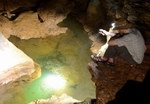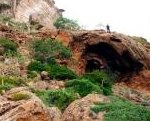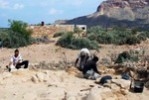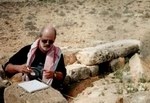Search tags
"Our mission is to document the presence of rock art located in the depths of Dahaisi cave using the latest photographic techniques. We are hoping they will help us uncover and study the animal and human figures, crosses, and strange array of geometric patterns that adorn the walls of the final chamber."
A Yemeni-Russian team that has been working together for five years in Yemen discovered last week a building on Socotra Island that dates back the eighth century A.D.
Preliminary Report of the Russian Interdisciplinary Mission to the Republic of Yemen submitted to the General Organisation of Antiquities and Museums (G.O.A.M.), Season 2009
According to Yemen’s mass media, the Socotra Archipelago and Hadramaut Province are on the threshold of a new season to be opened by archeologists, linguists and ethnographers from Institute of Oriental Studies of the Russian Academy of Science.
In November 2008 Russian archeologists discovered ancient stone tools on the Socotra Island. In view of the fact that scientists relate the things found to Oldowan (earlier spelled Olduwan or sometimes Oldawan), the first known tool complex in prehistory, this finding can be regarded as a worldwide archeologic sensation.
On Socotra, Yemen’s remote island, there were discovered the stone implements moving the history of the island almost one million years away. Previously, most researchers reckoned that this big island located near the Horn of Africa had been settled not so long ago.
The famous scientist and journalist Mukhammad Megalommatis published an article about Socotra of the “Periplus of the Erythraean Sea” (mid-1st century A.D.) epoch.







